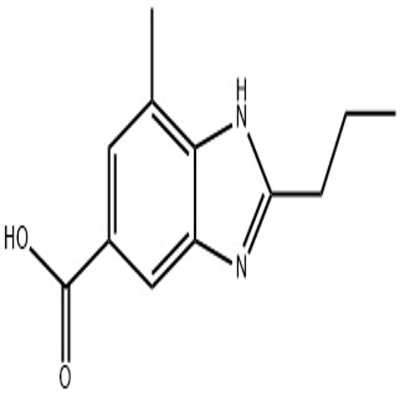-
Categories
-
Pharmaceutical Intermediates
-
Active Pharmaceutical Ingredients
-
Food Additives
- Industrial Coatings
- Agrochemicals
- Dyes and Pigments
- Surfactant
- Flavors and Fragrances
- Chemical Reagents
- Catalyst and Auxiliary
- Natural Products
- Inorganic Chemistry
-
Organic Chemistry
-
Biochemical Engineering
- Analytical Chemistry
-
Cosmetic Ingredient
- Water Treatment Chemical
-
Pharmaceutical Intermediates
Promotion
ECHEMI Mall
Wholesale
Weekly Price
Exhibition
News
-
Trade Service
3-Methoxythiophene-2-carboxylic acid, also known as MTCA, is an important intermediate in the production of a variety of chemicals and materials.
It is commonly used as an intermediate in the production of chemicals such as dyes, pigments, and pharmaceuticals.
The synthesis of MTCA can be achieved through a number of different methods, including both natural and synthetic routes.
In this article, we will examine some of the most commonly used synthetic routes for the production of MTCA.
One of the most common synthetic routes for the production of MTCA involves the use of a process known as the Williamson ether synthesis.
In this process, a benzaldehyde derivative is treated with an aqueous solution of sodium hydroxide, which results in the formation of a benzyl alcohol.
The benzyl alcohol is then treated with a halogenated molecule, such as chlorine or bromine, which results in the formation of a benzyl halide.
The benzyl halide is then treated with a methyl sulfate derivative, which results in the formation of an o-methylated benzyl halide.
The o-methylated benzyl halide is then hydrolyzed using a base, such as potassium hydroxide, which results in the formation of MTCA.
Another common synthetic route for the production of MTCA involves the use of a process known as the Wolff-Kishner reduction.
In this process, a benzaldehyde derivative is treated with a hydrazine solution, which results in the formation of a benzylidine.
The benzylidine is then treated with a reducing agent, such as hydrogen gas or a metal hydride, which results in the formation of MTCA.
A third synthetic route for the production of MTCA involves the use of a process known as the Bamford-Stevens reduction.
In this process, a benzaldehyde derivative is treated with a hydrazine solution, which results in the formation of a benzylidine.
The benzylidine is then treated with a reducing agent, such as borane, which results in the formation of MTCA.
There are also several other synthetic routes that can be used to produce MTCA, including the use of a process known as the Cohn reduction, the use of a process known as the Birch reduction, and the use of a process known as the Sarett oxidation.
Each of these routes has its own advantages and disadvantages, and the choice of route will depend on the specific needs of the manufacturing process.
In conclusion, the synthesis of 3-methoxythiophene-2-carboxylic acid (MTCA) is a crucial step in the production of many important chemicals and materials.
There are several different synthetic routes that can be used to produce MTCA, including the Williamson ether synthesis, the Wolff-Kishner reduction, and the Bamford-Stevens reduction.
Each of these routes has its own advantages and disadvantages, and the choice of route will depend on the specific needs of the manufacturing process.





![benzyl N-{2-[4-(4,4,5,5-tetramethyl-1,3,2-dioxaborolan-2-yl)phenyl]ethyl}carbamate](https://file.echemi.com/fileManage/upload/goodpicture/20210823/m20210823171124543.jpg)

